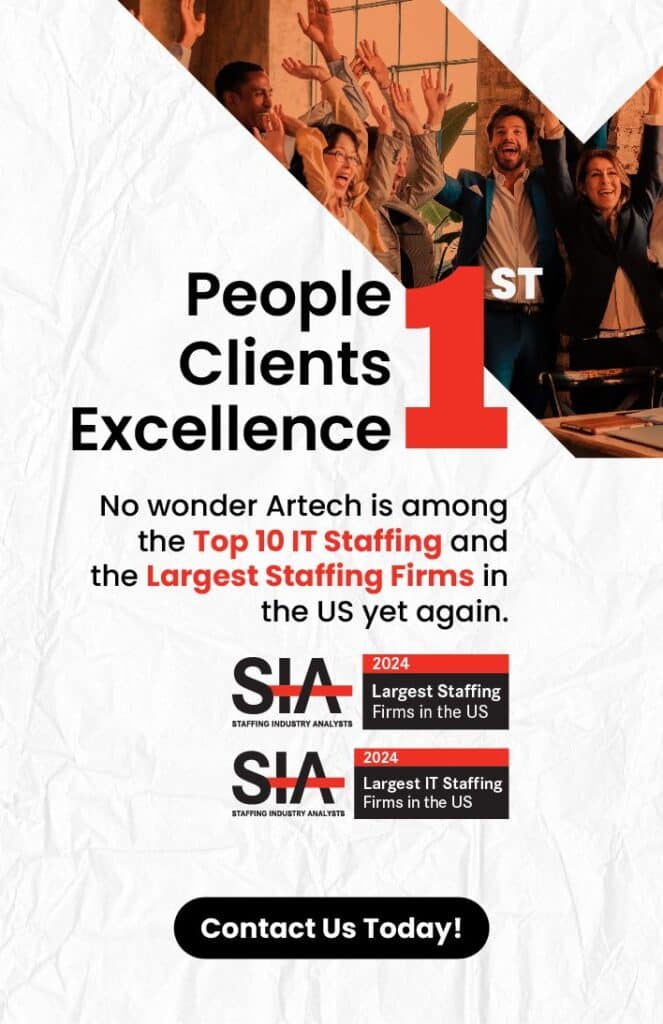In today’s competitive talent landscape, businesses across industries face a common challenge: securing the best talent while optimizing recruitment costs. As organizations grow, managing the hiring process can become overwhelming and resource-intensive, often diverting attention away from core business objectives. This is where Recruitment Process Outsourcing (RPO) comes in as a strategic solution to address these complexities. But what is RPO, and how can it make a difference for organizations looking to scale efficiently?
This article dives into what is recruitment process outsourcing, exploring its benefits, models, and why it has become a game-changer for modern recruitment. Whether you’re a hiring manager or a business leader, understanding what is RPO services can help you make more informed decisions and streamline your hiring process for maximum efficiency and quality.
What is RPO? An Overview
RPO, or Recruitment Process Outsourcing, is when an organization outsources part or all of its recruitment functions to an external provider. An RPO provider takes over tasks such as sourcing, screening, and onboarding candidates, tailoring the process to meet the specific needs of the organization. Unlike traditional staffing agencies, RPO providers become an extension of the company’s HR team, creating a more integrated and customized approach to hiring.
To fully understand what is RPO recruitment process outsourcing, consider it a partnership rather than a transaction. RPO providers not only deliver candidates but also bring advanced recruitment technologies, refined processes, and industry expertise to enhance hiring quality and reduce time-to-hire. This collaborative approach enables businesses to scale quickly without the burden of building an in-house recruitment team from scratch.
Benefits of Recruitment Process Outsourcing
-
Cost Efficiency
One of the primary reasons companies turn to RPO recruiting is for cost savings. By outsourcing recruitment, organizations can cut down on advertising costs, agency fees, and other recruitment-related expenses. RPO providers often have established networks and access to resources that allow them to find quality candidates faster and more affordably.
-
Access to Expertise and Technology
An RPO provider brings industry insights, advanced technology, and data-driven processes that are often out of reach for smaller in-house teams. With access to innovative tools and analytics, RPO providers help companies optimize their recruitment processes, ensuring better candidate quality and improved retention rates. By understanding the RPO model in recruitment companies can leverage this expertise to align their hiring strategy with market trends and evolving needs.
-
Scalability
One of the standout advantages of RPO services is scalability. As businesses grow or encounter fluctuating hiring demands, RPO providers can adjust recruitment processes to accommodate these changes. This scalability is especially valuable during peak hiring seasons or expansion phases, as companies can ramp up or downsize hiring efforts without additional overhead costs.
-
Enhanced Candidate Experience
The candidate experience plays a significant role in attracting top talent. RPO providers are well-versed in crafting candidate-centric recruitment processes that foster positive impressions, reduce time-to-hire, and ensure clear communication throughout the process. An enhanced candidate experience can bolster a company’s reputation and help secure top candidates who might otherwise seek opportunities elsewhere.
-
Compliance and Risk Management
Understanding and adhering to local and international hiring regulations is crucial to avoid legal and compliance risks. RPO providers have dedicated teams that stay updated on recruitment laws and regulations, ensuring that companies remain compliant. This minimizes the risks associated with hiring, such as non-compliance penalties, and helps maintain a strong employer brand.
The RPO Model in Recruitment: How Does It Work?
To understand what is RPO model in recruitment, it’s helpful to know the common models RPO providers use:
-
End-to-End RPO
In this model, the RPO provider takes full responsibility for the entire recruitment process, from sourcing to onboarding. End-to-end RPO is often chosen by companies with high-volume hiring needs or limited recruitment resources, as it allows for seamless integration and a unified hiring approach.
-
Project-Based RPO
Project-based RPO is a short-term solution for specific recruitment projects, such as seasonal hiring or rapid expansion. Organizations may choose this model to quickly scale their recruitment efforts without committing to a long-term contract. Project-based RPO is flexible and cost-effective, ideal for meeting immediate needs.
-
On-Demand RPO
On-demand RPO is a scalable solution that allows companies to access RPO services when needed. Organizations use on-demand RPO to handle sudden spikes in hiring or specific recruitment challenges. This model is popular for its flexibility, enabling companies to meet hiring targets without long-term commitment.
-
Hybrid RPO
Hybrid RPO combines in-house recruitment efforts with external support from an RPO provider. This model is beneficial for companies with a partially established recruitment function that needs additional support in specific areas, such as sourcing or onboarding. Hybrid RPO provides flexibility, allowing organizations to control parts of the recruitment process while leveraging the expertise of an RPO provider.
Common Misconceptions About RPO
-
RPO is Only for Large Organizations
While it’s true that large organizations often utilize RPO for high-volume hiring, RPO services are also accessible and beneficial for small to mid-sized companies. RPO providers can tailor solutions based on the scale and specific needs of each organization, making it a viable option for businesses of all sizes.
-
RPO Replaces Internal HR Teams
RPO is designed to complement and support internal HR teams, not replace them. By collaborating with an RPO provider, HR teams can focus on strategic initiatives and employee engagement rather than the operational aspects of recruitment. This partnership allows internal HR staff to play a more significant role in shaping company culture and long-term planning.
-
RPO is the Same as Traditional Staffing
Unlike traditional staffing agencies that fill roles on a transactional basis, RPO providers establish a long-term partnership with organizations. They work to understand company culture, refine the recruitment process, and bring sustainable value through data-driven strategies. RPO providers focus on aligning with business objectives rather than just filling positions.
FAQs
- What is RPO in simple terms?
RPO, or Recruitment Process Outsourcing, is a business model where an organization outsources some or all of its recruitment functions to a third-party provider. This partnership helps companies streamline hiring, improve candidate quality, and reduce recruitment costs.
- How is RPO different from traditional recruitment?
RPO is more comprehensive than traditional recruitment as it involves a holistic approach to managing the entire hiring process. Unlike staffing agencies, RPO providers work as an extension of the company’s HR team, focusing on long-term recruitment success and alignment with business goals.
- What are the main benefits of RPO?
Key benefits of RPO include cost savings, access to recruitment expertise and technology, scalability, improved candidate experience, and compliance management. By partnering with an RPO provider, companies can enhance their recruitment process and attract top talent more efficiently.
- Who should consider using RPO services?
Organizations facing high-volume hiring needs, limited recruitment resources, or rapid growth should consider RPO services. RPO can also benefit businesses looking to improve their recruitment process, reduce hiring costs, or ensure compliance with local hiring regulations.
- How do RPO providers ensure cultural alignment with clients?
RPO providers work closely with companies to understand their values, goals, and culture. By immersing themselves in the organization’s environment and values, RPO providers can create a recruitment process that attracts candidates who align with the company’s culture and objectives.
Conclusion
What is RPO recruiting if not a strategic tool for businesses aiming to enhance their recruitment efforts while keeping costs in check? As Indian businesses contend with an evolving talent landscape, Recruitment Process Outsourcing (RPO) has proven to be a powerful model that provides flexibility, expertise, and scalability. RPO is not a one-size-fits-all solution; it is highly customizable and can adapt to the specific needs of any organization, big or small.
Whether you’re a small business aiming for growth or a large enterprise needing extensive recruitment support, what is RPO recruitment process outsourcing can be the competitive advantage you need. From improving candidate quality to reducing time-to-hire, RPO enables organizations to remain agile, responsive, and ahead in the talent acquisition game. In an era where finding and retaining top talent is more challenging than ever, embracing RPO can pave the way for a streamlined, efficient, and effective recruitment strategy that aligns with your organization’s broader goals.
This content is crafted with care by Artech Staff Authors. While it reflects our commitment to quality and accuracy, please note that it is not authored by industry experts. We aim to offer valuable and engaging information, and for more specialized or technical advice, we recommend consulting with professionals in the relevant field. If you have any concerns or require further assistance, please contact us at support@artech.com. Thank you for trusting Artech as your source of informative content.






